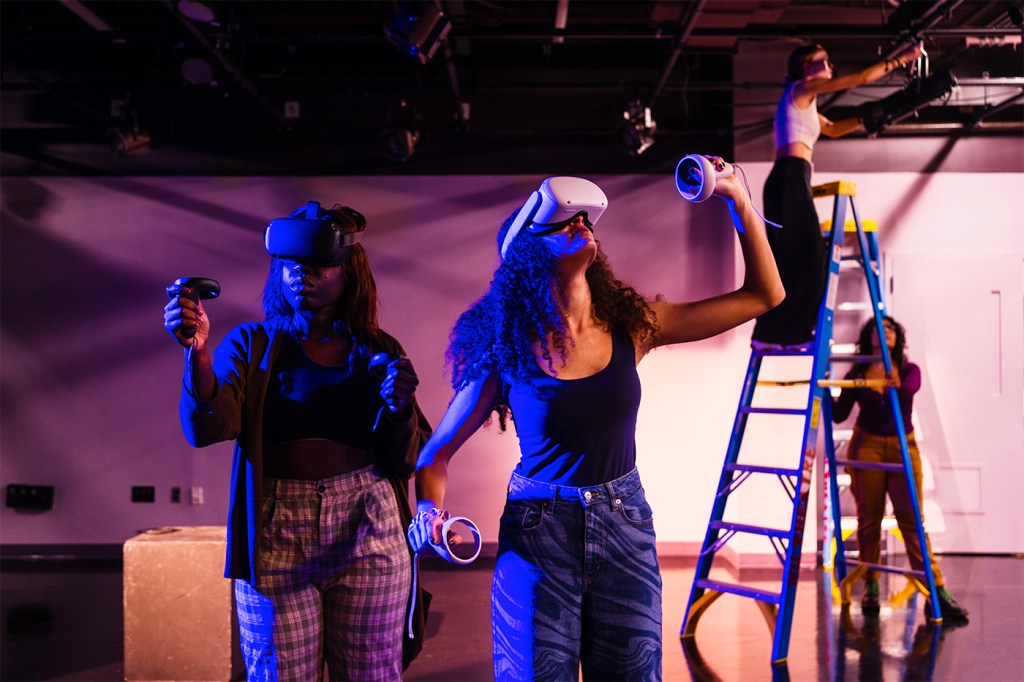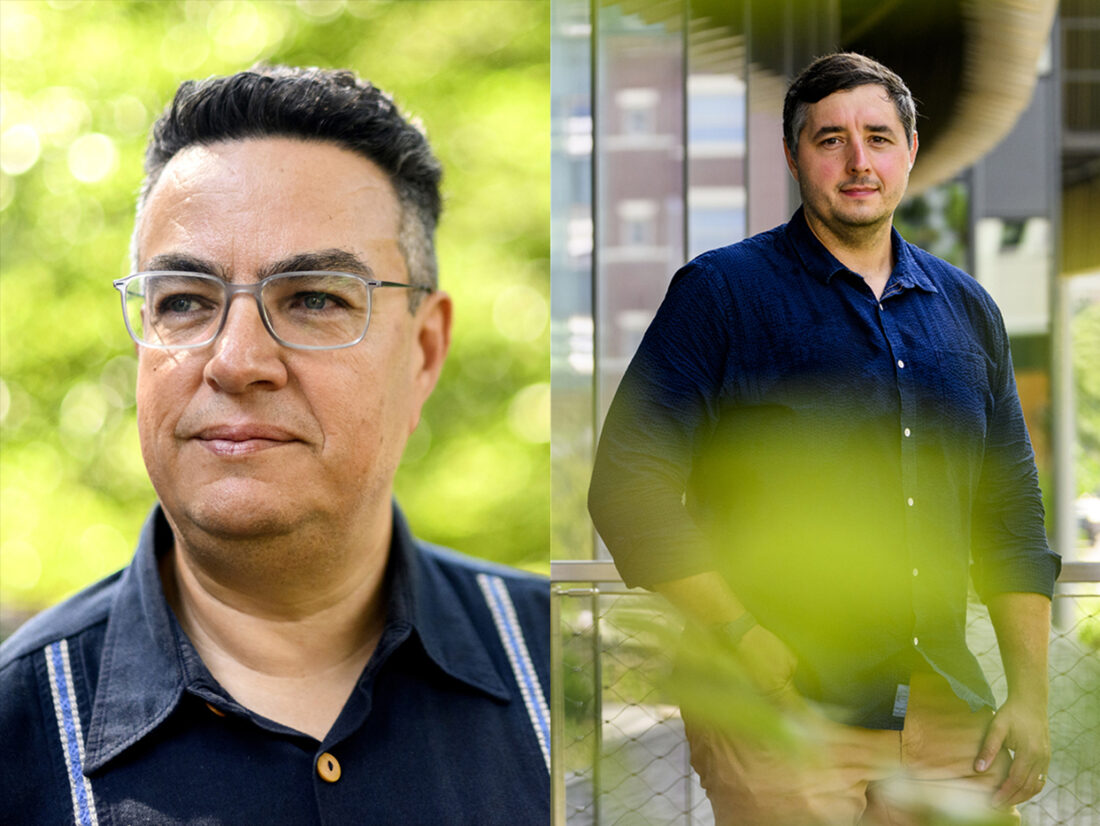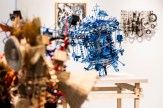Northeastern is making a first-of-its-kind extended reality and performance program

Imagine you’ve dressed up for a night out at the theater to see your favorite play. You settle into your seat and get ready for the show, but there’s still something you need to do: strap on your virtual reality headset.
Thanks to a new, first-of-its-kind program at Northeastern University, this scenario might be closer than you think.
Two Northeastern faculty members aim to launch a bachelor program in performance and extended reality within the next year that will train the next generation of immersive storytellers to combine the arts, cutting-edge technology and a human-centric approach to design.
“Up until now there have been people who are very good at the technological aspects –– coding and creating the containers for it –– and people who are experts in the performance part of it,” says Antonio Ocampo-Guzman, chair of Northeastern’s theater department and one of two faculty leaders on the program. “What we’re interested in is people who are able to do both.”
“That’s part of my agenda, to find a way to put forth a new way of understanding what undergraduate education can be through integration of these fields,” Ocampo-Guzman adds.

Extended reality involves a combination of virtual, mixed and augmented reality technologies and tools that bridge the divide between real and virtual environments. It’s not exactly new to the performing arts. The concept of immersive theater and immersive media more broadly have been around for quite some time. But particularly during the COVID-19 pandemic, artists started to rethink the very idea of theatrical performance through new technologies, Ocampo-Guzman says.
Ocampo-Guzman hopes the new major, which could potentially soft launch in fall 2024, will help push the performing arts even further into the future by fostering new connections between the arts and technology, which he sees as “two branches of the same tree.”
Higher education has yet to fully embrace the potential of XR and the arts, particularly at the undergraduate level, says Mark Sivak, associate teaching professor of art and design, director of XR initiatives at Northeastern and the second faculty leader of the program.
“The vast majority of XR offerings you see at universities are more on the technical side,” Sivak says. “You don’t see as much of a focus on practitioners using the technology rather than developing the technology.”
That’s where Northeastern’s bachelor of science in XR and performance –– and its new masters of science in extended realities, set to launch in 2024 –– comes in.
The program embraces Northeastern President Joseph Aoun’s approach to robot-proofing the future, called humanics. Instead of focusing on the technology as the medium for storytelling and the human as a tool, as is common in a lot of XR design, Sivak says, the major will teach students to remain the storytelling vehicle while using technology as an augmented storytelling tool. VR headsets, 360-degree cameras and Microsoft HoloLens, the tech that students will learn to use through the program, become more like a paintbrush or sculptor’s chisel.
Students will not necessarily be required to come in with previous coding or acting experience. The program will bring together a number of existing courses scattered across Northeastern’s College of Arts, Media and Design to give students a foundation in performance and technological design before they build their own path through the program.
“There will be some basic courses that connect these areas, but then, depending on the interests and passions of each person, they can take it through a more specifical theatrical venue or more specific music venue or more specific game design venue or animation venue or media arts venue,” Ocampo-Guzman says.
Introduction to immersive media and a course about prototyping with code will exist alongside introduction to acting and music technology and the ethics of creativity. The major will also include new courses as well as advanced undergraduate and even graduate-level courses in areas like virtual environment and immersive performance design.
Together, all of the courses in the major are designed to give students the tools to create their own work and start pushing the boundaries of what’s possible in immersive media and entertainment –– and to do so with the eye of a designer and artist, not just an engineer.
Sivak says students coming out of the program will be not only “the glue” that connects engineers and artists on innovative, immersive projects. He hopes they will be the explorers pushing into the unknown future of what XR and the performing arts can be.
“What we’re trying to do with this program is create the people that can dig much deeper with these technologies,” Sivak says. “How can this fundamentally change how we do things? That’s really where I think the skillset that they will get from the theater, communication and music background can come in because it can provide a holistic understanding of the human’s role in the technology.”
Cody Mello-Klein is a Northeastern Global News reporter. Email him at c.mello-klein@northeastern.edu. Follow him on X/Twitter @Proelectioneer.






